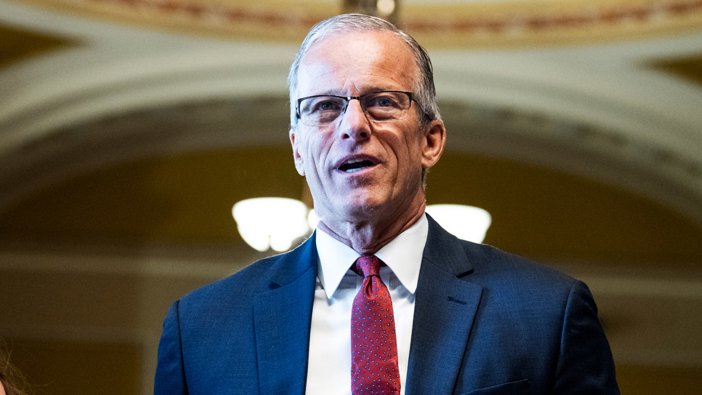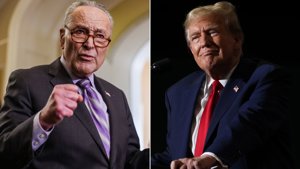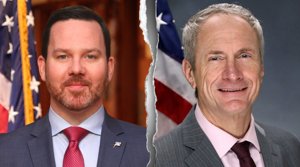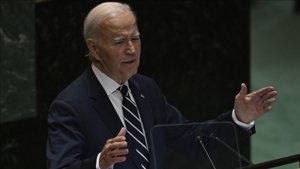
Trump’s Tax and Spending Cuts Ignite Battle in Congress
House and Senate Republicans defend Trump’s sweeping tax and spending cuts as Democrats warn of major impacts on health and safety nets.
Republicans Launch Ad Blitz Defending Trump’s Policy Law
As the 2026 midterm campaign intensifies, House Republicans are rolling out the first digital ads to defend President Donald Trump’s newly signed domestic policy package. The measure, branded by the GOP as the “one big, beautiful bill,” features major campaign pledges—tax relief, immigration crackdowns, and expanded border security—and is being promoted nationwide as critical relief for working families and seniors.
The National Republican Congressional Committee’s ads highlight provisions such as a Working Families Tax Cut, the removal of taxes on tips, and tax relief on Social Security income. “Republicans took action with President Trump to make America more affordable again,” the ads proclaim, promising annual savings for families and benefits for seniors. The law, signed on July 4 in a White House ceremony, locks in Trump’s signature 2017 tax cuts and eliminates taxes on overtime pay, aiming to deliver nearly $4.4 trillion in tax reductions over the next decade, according to congressional estimates.
However, the bill also restructures Medicaid and introduces cuts to food stamps and other key safety net programs to help offset costs. New work requirements are attached to Medicaid eligibility, and funding for these programs is pared back, drawing fierce opposition from Democrats who characterize the move as the largest cut to Medicaid and food assistance in modern U.S. history.
Senate Battle Over Trump’s $9.4 Billion Spending Clawbacks
Meanwhile, a parallel battle unfolds in the Senate over President Trump’s $9.4 billion rescission package—a set of spending cuts designed to claw back funds already approved by Congress. Fiscal conservatives in the House are urging Senate Republicans to pass the package without changes, warning that any weakening would undermine both Trump’s leadership and the party’s commitment to fiscal responsibility.
The House-passed rescissions bill targets over $1 billion in funding for public broadcasting and nearly $8.4 billion from the U.S. Agency for International Development. Some Senate Republicans, however, are seeking amendments to preserve funding for high-profile programs like the President’s Emergency Plan for AIDS Relief (PEPFAR) and rural radio stations that deliver emergency services.
Senate Majority Leader John Thune is working to rally support for the clawback package amid dissent from within his caucus. He can only afford to lose three votes in a closely divided chamber, with no Democratic support expected. An amendment process is anticipated, but changes could complicate final passage, as House Republicans have warned their Senate colleagues to pass the measure as approved.
Democrats Warn of Risks to Healthcare and Social Programs
Democrats have condemned the legislation as an attack on America’s most vulnerable. Party leaders and campaign officials argue that the combined tax and spending package jeopardizes healthcare for millions, especially through deep Medicaid cuts, and provides tax breaks to the wealthy at the expense of low-income Americans. “Extreme House Republicans just approved the largest cut to Medicaid and food assistance in American history to fund tax breaks for their billionaire donors,” said House Democratic Leader Hakeem Jeffries.
Democratic campaign groups are pledging to make the legislation a centerpiece of their effort to reclaim the House majority, citing polling that suggests the bill is deeply unpopular. At the same time, Republicans argue that the package is essential to curbing federal deficits, tackling wasteful spending, and keeping their promise to put working families first.
As the Senate prepares for a decisive test vote, the fate of Trump’s tax and spending agenda hangs in the balance. The outcome will shape the trajectory of federal fiscal policy and define party strategies as both sides gear up for a high-stakes election cycle.






